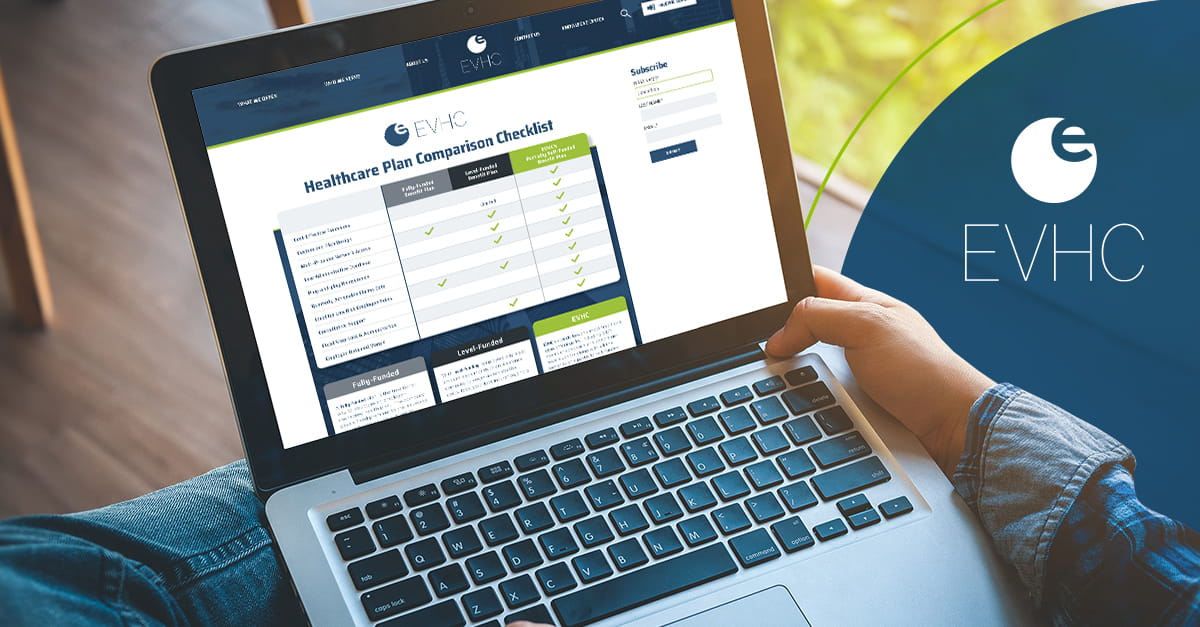
For brokers, employers, and their employees, health insurance has always been seen as largely transactional. Every year, brokers sit down with HR managers to discuss the latest and greatest health insurance plans. Usually, the process goes something like this: the broker collects quotes from different carriers, they put the quotes on a spreadsheet, walk their clients through the numbers, and companies make decisions on which carrier to go with based on the bottom line. It’s like that old game show “Let’s Make a Deal,” but with people’s healthcare at stake.
But Excel is not a strategy, and employers can’t make these kinds of important decisions by looking at a spreadsheet. A spreadsheet is impersonal, not tailored to the needs of a broker’s clientele. It also doesn’t tell the full story because quotes on a spreadsheet do not really give a holistic picture of where a company’s money goes. It certainly doesn’t all go towards covering claims. It should be understood that carriers routinely build in a 25% margin that employers may not even know about, ensuring they always win in the end.
In fact, health insurance is not transactional—even if large carriers are doing their best to make it that way. Most carriers auto-adjudicate 90 to 95% of their claims, quickly approving or denying them without much analysis. This saves the carriers time and money and results in a lot of errors.
That’s no way to treat a claim from an individual who may be going through a personal hardship. Think of the last time you really thought about your own health insurance. Was it when you visited a loved one in a hospital? Maybe it was your last visit to the doctor or an unexpected visit to the ER? Maybe you were surprised to find out your insurance didn’t cover a particular service. Or, maybe you found yourself paying a lot more money than you should have for care.
Personally, the day I realized health insurance is not transactional was the day my son was born. Shortly after birth he spent some time in the NICU. Obviously, those were stressful days, but I took comfort in knowing that I always had someone to talk to about what to expect, both in terms of healthcare and insurance. Not everyone is so lucky—but they should be.
The point is, health insurance should be considered personal, not transactional, because having good, affordable health insurance impacts everyone in different ways:
Fully-funded insurance carriers don’t seem to get any of this. They continue to push an old narrative, trying to convince brokers, employers, and employees that the only way to do business is through outdated traditional models. Why shouldn’t they? After all, it’s in their best interest to do so. No insurance carrier wants to create a truly customized plan for their customers. They’d prefer to offer “one-size-fits-all” plans that effectively hide their ridiculous margins.
Partially self-funded insurance brings the changes that brokers, employers and employees need. It puts control in the hands of brokers and employers while ensuring employees continue to receive their choice of providers. It also allows brokers to help their clients create completely customized plans that save their customers money and provide their employees with the plan they want and can afford. Employers don’t have to worry about paying for coverage their employees never use and employees still get access to wide carrier networks with superior, concierge level customer service.
At EVHC, we truly believe in putting a personal face on health insurance. For example, we learned of an individual who was traveling once a month to the hospital for a heavy-duty IV infusion therapy. The person was driving 90 minutes each way, sitting in a room for six hours, and paying $27,000 a month for that “privilege.”
We recommended a plan that allowed them to receive the exact same infusion therapy from the comfort of their home, through a home infusion therapy service. This resulted in a savings of more than $22,000 a month—and a plan member who ecstatically exclaimed, “You mean I get to stay home and get the same treatment in my recliner while watching Ellen?!”
There are other ways in which we create a more personalized and effective experience for everyone involved. We closely consult with brokers and employers to ensure plans are always delivering the expected savings and ROI. And we provide employees with easy to use, always-on applications they can use to find and engage with doctors, ask questions, receive lifestyle coaching, and more.
Remember those high auto-adjudication rates that carriers employ? At EVHC, we only auto-adjudicate about 60% of claims. That means a significant portion of claims we review are looked at very closely, which minimizes the potential for error and enables us to identify those who might benefit from a little, or a lot, of help and some caring support.
We do all of this because we understand that getting health insurance right while making it more cost-effective is important to every organization and individual we serve. These little personal touches add up to big savings, an improved employee experience, and better insurance options for everyone.
BACK TO INSIGHTS
